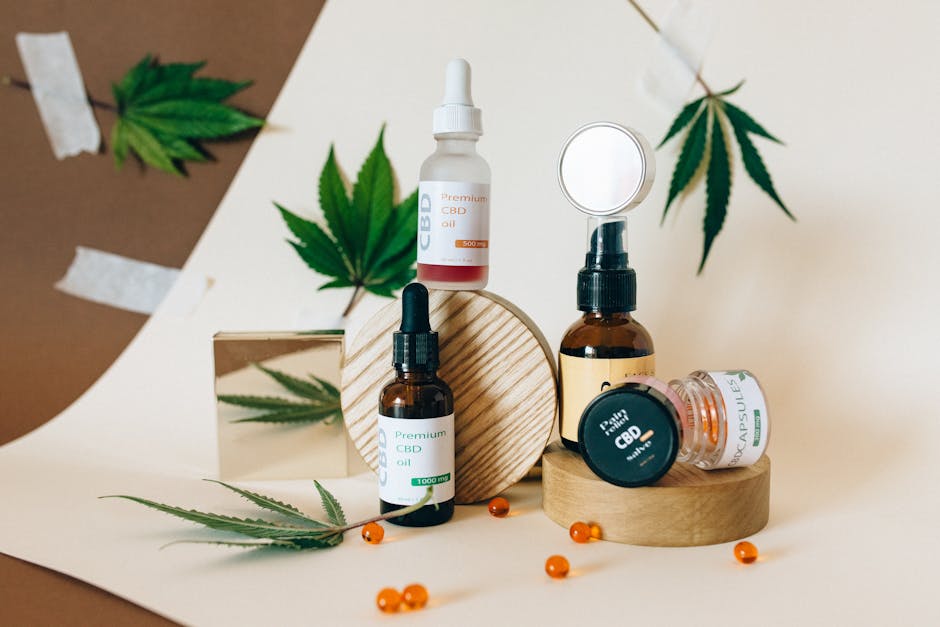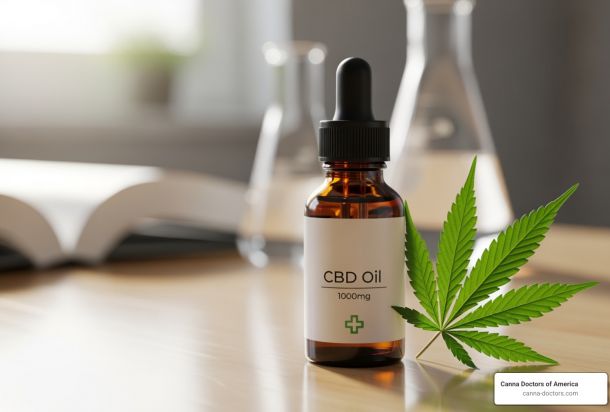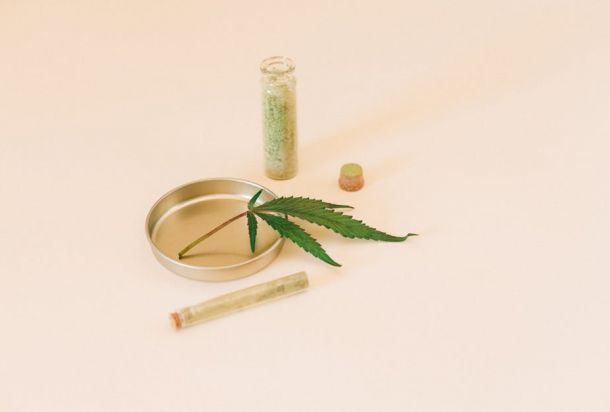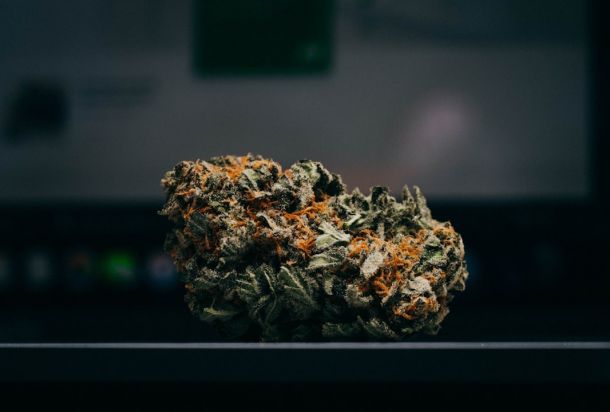Medical Marijuana Cards Made Simple: Here’s How You Get One
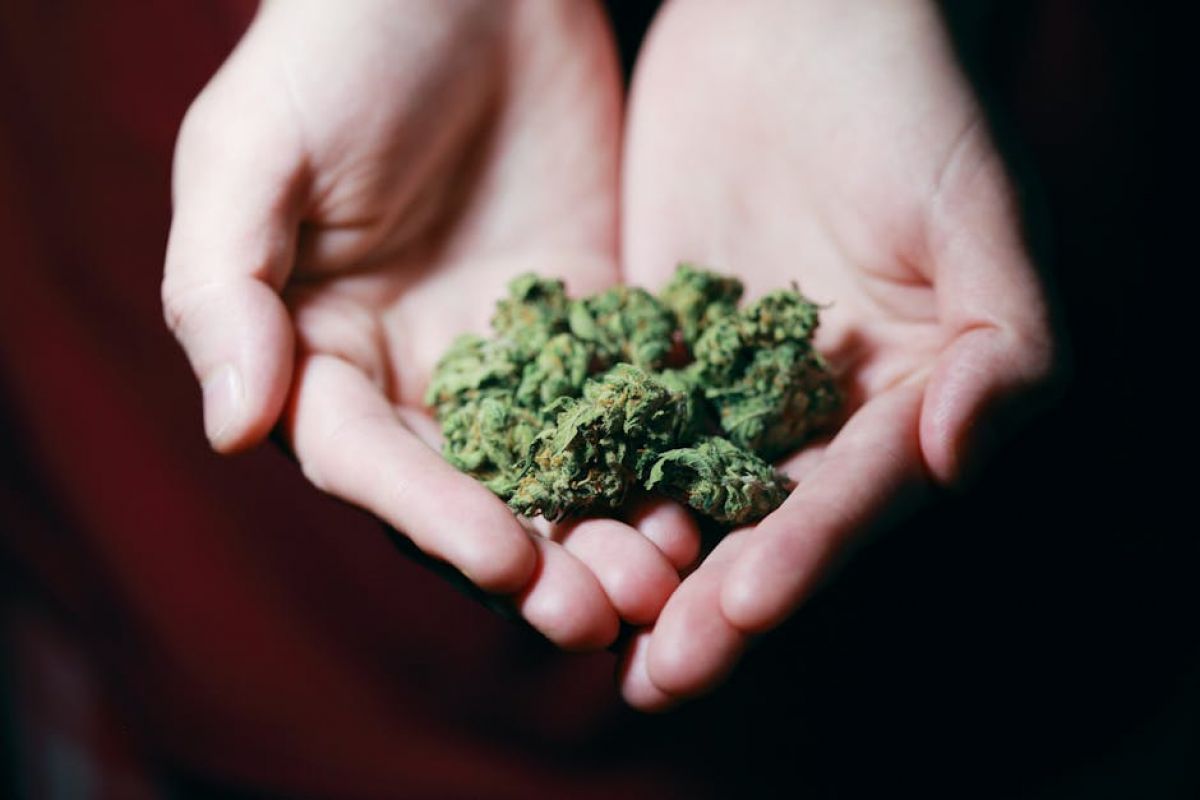
How to Get Your Medical Marijuana Card in 3 Simple Steps
If you’re wondering how can i get medical marijuanas card, here’s a quick answer:
- Find a qualified physician who can evaluate your condition (must be in-person for first-time patients)
- Complete an evaluation where the doctor will determine if you qualify and enter you into the state registry
- Submit your application with the $75 fee to the state’s Medical Marijuana Use Registry
The process typically takes 10-14 business days from application to approval, after which you’ll receive a temporary digital card to use while waiting for your physical card.
Navigating the medical marijuana application process doesn’t have to be complicated. Whether you’re seeking relief from chronic pain, anxiety, or another qualifying condition, understanding how can i get medical marijuanas card is the first step toward a natural treatment alternative.
As Florida’s medical marijuana program continues to grow—now serving over 875,000 patients—more people are finding the benefits of having legal access to cannabis products custom to their specific needs. Unlike recreational use, a medical card provides important legal protections, access to higher-quality products, and professional guidance on dosing and product selection.
The good news? Getting your card is straightforward when you know the steps to follow. In this guide, we’ll walk you through everything from finding a qualified doctor to receiving your card—no complicated medical jargon or confusing legal terms.
I’m Geoff Massey, Regional Director of Canna Doctors of America, where I’ve helped thousands of patients steer how can i get medical marijuanas card through our network of specialized physicians who understand the therapeutic benefits of medical cannabis for various conditions.
What Is a Medical Marijuana Card & Why Do You Need One?
Imagine having a special pass that opens the door to natural relief for your medical condition. That’s exactly what a medical marijuana card is – your official ticket to legally accessing cannabis for health purposes in Florida.
This state-issued ID card (sometimes called an MMJ card) isn’t just a piece of plastic – it’s your proof to law enforcement and dispensaries that a qualified physician has certified your condition could benefit from medical cannabis. The Office of Medical Marijuana Use (OMMU) issues these cards after you’ve been properly evaluated and approved.
“Having a medical marijuana card isn’t just about legal access—it’s about having the right to treat your condition with a natural alternative that many patients find more effective and with fewer side effects than traditional pharmaceuticals,” explains Dr. Maria Sanchez, a physician at Canna Doctors of America.
Your card essentially works like a prescription card, but specifically for cannabis products. It’s your protection and your passport to relief.
| Medical Card Holders | Recreational Users (in states where recreational use is legal) |
|---|---|
| Access at age 18+ with qualifying condition | Must be 21+ years old |
| Lower taxes on purchases | Pay higher recreational taxes |
| Higher potency products available | May have potency limits |
| Physician guidance on products and dosing | No professional medical guidance |
| Legal protection for possession within limits | Subject to stricter possession limits |
| Access to medical-only dispensaries | Limited to recreational dispensaries |
| Often priority service at dual-license dispensaries | May face longer wait times |
Medical Card vs Recreational Use
While Florida hasn’t joined the recreational cannabis club yet, understanding the differences between medical and recreational use helps explain why a card is so valuable:
When you have a medical card, you benefit from lower taxes on your purchases – in states with both programs, medical patients often save 15-25% compared to recreational buyers. You also gain access to higher-potency options specifically designed for therapeutic effects, not just recreational enjoyment.
Age is another factor – medical marijuana is available to qualified patients 18 and older (and even to minors with proper authorization), while recreational use typically requires being 21+.
Perhaps most valuable is the physician guidance you receive. Instead of guessing what might help your specific condition, you get personalized recommendations from qualified doctors who understand your needs.
Maria from Tampa shares her experience: “Before getting my card, I was self-medicating with whatever I could find. Now I have a doctor who helps me choose strains and products specifically for my fibromyalgia pain. The difference in quality and effectiveness is night and day.”
Legal Protections & Limitations
Your medical marijuana card comes with important legal shields in Florida, but it’s not an all-access pass. Here’s what you need to know:
With your card, you’re legally protected to possess up to a 70-day supply (the exact amount varies by product type). You’re safe from arrest for possession within these legal limits and can shop at state-licensed Medical Marijuana Treatment Centers (MMTCs).
However, cannabis remains federally illegal as a Schedule I controlled substance. This means no public use is allowed – consumption must happen in private spaces. You also cannot drive under the influence, cannot transport across state lines (even to other medical states), and employers can still enforce drug-free workplace policies. Landlords may also restrict use on their properties.
As of March 2024, Florida law allows qualified patients to possess up to 4 ounces of smokable marijuana, with purchase limits of 2.5 ounces per 35-day period. For other forms of cannabis, limits are calculated by milligrams of THC.
When patients ask me “how can I get medical marijuanas card?”, I always explain these protections and limitations first – because understanding what your card does (and doesn’t) allow is just as important as knowing how to get one.
Am I Eligible? Qualifying Conditions & Residency Rules
Wondering if you qualify for medical marijuana in Florida? The good news is that Florida has one of the more accessible medical cannabis programs in the country. To be eligible, you’ll need to meet two fundamental requirements:
- Be a Florida resident (either permanent or seasonal)
- Have a qualifying medical condition diagnosed by a qualified physician
Florida’s list of qualifying conditions is quite comprehensive. If you’re living with cancer, chronic pain, PTSD, epilepsy, glaucoma, or HIV/AIDS, you may find relief through medical cannabis. The state recognizes these conditions alongside others like ALS, Crohn’s disease, Parkinson’s disease, and multiple sclerosis.
What many patients don’t realize (and it’s often a pleasant surprise) is that Florida’s laws include a provision for “medical conditions of the same kind or class” as those specifically listed. This gives physicians meaningful discretion to help patients with conditions like anxiety, migraines, or insomnia when traditional treatments haven’t provided adequate relief.
“I see patients every day who’ve tried everything for their arthritis pain,” shares Dr. James Wilson of Canna Doctors of America. “The ‘comparable conditions’ clause allows us to help these folks when we believe cannabis could genuinely improve their quality of life. It’s not about finding loopholes—it’s about helping people who are suffering.”
To prove your Florida residency, you’ll need either a Florida driver’s license/ID card or two documents showing your Florida address (like utility bills, mortgage statements, or voter registration). Seasonal residents—those snowbirds who live in Florida for at least 31 consecutive days each year—can also qualify with the right documentation.
More info about Qualifying Conditions
Who Can Apply—Adults, Minors & Caregivers
The medical marijuana program in Florida isn’t just for adults—it’s designed to help patients of all ages who could benefit from cannabis therapy.
For adults 18 and older, the process is straightforward. Once a qualified physician certifies your condition, you can apply independently and manage your own medication.
For minors under 18, there are additional safeguards in place. Young patients need certification from two physicians instead of just one, plus written consent from a parent or legal guardian. If smokable marijuana is recommended, the minor must have a terminal condition. Parents or guardians must also apply for a caregiver card to purchase and administer the medicine.
“Getting my daughter approved was worth the extra steps,” explains Maria, whose 16-year-old has severe epilepsy. “Having two doctors review her case actually gave us more confidence in the treatment plan. Her seizures have decreased dramatically since starting medical cannabis.”
Caregivers play a vital role for patients who cannot shop at dispensaries or manage their medication independently. To become a caregiver in Florida, you must be at least 21 years old, be a Florida resident, and complete a caregiver application. If you’re not a close relative (defined as a spouse, parent, sibling, grandparent, child, or grandchild), you’ll need to pass a Level 2 background check. Generally, caregivers can assist only one patient unless specific exceptions apply.
The caregiver system ensures that vulnerable patients—whether elderly, disabled, or minors—can access their medicine safely and consistently, even when they can’t visit a dispensary themselves.
When you’re ready to explore whether how can i get medical marijuanas card is right for your condition, a consultation with a qualified physician is your best first step. They’ll review your medical history, current symptoms, and treatment goals to determine if you meet the qualifying criteria.
How Can I Get Medical Marijuanas Card: 7-Step Application Guide
Let’s break down exactly how can i get medical marijuanas card in Florida with a clear roadmap that takes you from curious patient to card-carrying member of Florida’s medical cannabis community:
Step 1: Find a Qualified Physician Near You
Your journey begins with finding the right doctor—one specially trained and certified by the state to recommend medical marijuana. Not every physician can do this, so you’ll need someone registered with Florida’s Medical Marijuana Use Registry (MMUR).
“Finding the right doctor made all the difference for me,” shares James from Clearwater. “I wanted someone who wouldn’t rush me through the process and would really listen to how my back pain was affecting my life.”
Before your appointment, gather your medical records that document your condition. This might include imaging results, specialist reports, or medication histories. Having these ready shows your doctor you’re serious and helps them make an informed decision about your eligibility.
Since House Bill 387 went into effect in July 2023, your first evaluation must be in person—no exceptions. This face-to-face requirement ensures your doctor can properly assess your condition before recommending cannabis therapy.
Step 2: In-Person Evaluation & Certification (HB 387 Rule)
Your doctor’s appointment is more than just a quick chat—it’s a comprehensive evaluation of your health. During this visit, your physician will review your medical history, perform a physical examination, and discuss how your symptoms impact your daily life.
This is your chance to ask questions! Curious about different consumption methods? Wondering about potential side effects? Your doctor is there to guide you through these concerns.
“I was nervous about my appointment,” admits Sophia from Tampa, “but my doctor at Canna Doctors put me at ease right away. She explained everything in simple terms and created a treatment plan custom specifically for my anxiety.”
If your doctor determines that medical cannabis could benefit you, they’ll create your profile in the state registry and establish your initial orders. These orders specify exactly what types of products you can purchase (like flower, tinctures, or topicals) and how much.
Step 3: Registry Entry & Online Application
Once your doctor enters you in the registry, you’ll receive two separate emails—one with your username and another with a temporary password. These are your keys to the Medical Marijuana Use Registry, where you’ll complete your application.
The online application process is straightforward but requires attention to detail. You’ll need to upload a clear, passport-style photo (no selfies with distracting backgrounds, please!). The system will typically verify your Florida ID automatically, saving you from uploading additional residency documents.
The electronic signature portion is legally binding, so make sure all information is accurate before submitting. Think of this step as your formal request to the state to become a registered patient.
Need help navigating the registry? The state offers helpful Registry Instructional Guides that walk you through each screen with screenshots.
Step 4: Pay the $75 State Fee & Submit
Now it’s time to make it official with your payment. The state application fee is $75, which you can pay online with a credit card for immediate processing. If you prefer, you can also mail a check or money order, though this will add processing time.
This fee covers your card for a full year before renewal is needed. Consider it an investment in your health—less than 21 cents per day for legal access to your medicine.
After payment, you’ll receive a confirmation email. Now the waiting game begins, but it’s typically shorter than most people expect!
Step 5: Receive Your Temporary Card & Shop
Here’s where things get exciting—you don’t need to wait for a physical card to arrive before visiting a dispensary! Once approved (usually within 10-14 business days), you’ll receive an email with your temporary electronic card attached.
This digital card, along with your Florida ID, is your golden ticket to any Medical Marijuana Treatment Center (MMTC) in the state. Print it out or keep it on your phone—either way works for your first dispensary visit.
“I still remember my first dispensary visit,” recalls Miguel from St. Petersburg. “I was amazed at how professional everything was—more like a pharmacy than anything else. The staff spent nearly 30 minutes helping me understand different strains and products for my insomnia.”
First-time shoppers often find the variety overwhelming, so don’t hesitate to ask questions. Dispensary staff are trained to help patients find the right products for their specific conditions.
Want to be prepared for your first visit? Check out What Do You Need to Bring to a Florida Dispensary? for a complete guide.
Step 6: Renewal Every 12 Months & Recertification Every 210 Days
Your medical marijuana journey doesn’t end when you get your card. Two important timelines to remember:
Your card renewal happens annually, requiring another $75 fee and application update through the registry. The state will send a reminder email 45 days before expiration, giving you plenty of time to complete this process.
Your physician recertification happens every 210 days (about 7 months). This is when your doctor reassesses your condition and renews your product orders. Without this recertification, your card remains valid, but you won’t be able to purchase products.
The good news? After your initial in-person visit, these recertification appointments can typically be done via telehealth—a convenient option for busy patients. Just hop on a video call with your doctor to maintain your active status in the program.
“I nearly missed my recertification date,” admits Carlos from Clearwater. “Thankfully, my doctor’s office sent me a reminder text, and I was able to schedule a quick telehealth appointment that kept my orders active.”
Want to know more about timelines? Check out How Long Does It Take to Get a Medical Marijuana Card? for detailed information.
How can I get medical marijuanas card online vs in-person?
The digital age has made many aspects of healthcare more convenient, but how can i get medical marijuanas card still requires some in-person interaction—at least initially.
Florida law requires that first-time patients have an in-person physical examination. This face-to-face meeting ensures your doctor can properly assess your condition and establish a genuine doctor-patient relationship.
However, once you’ve had that initial in-person visit, renewal certifications can typically be done via telehealth. This means you can recertify from the comfort of your home through a video call with your doctor.
“The telehealth option for renewals has been a lifesaver,” says Rachel, who lives in rural Florida. “I’m an hour from the nearest qualified doctor, so being able to recertify online saves me half a day of travel.”
Your card application and renewal can also be completed entirely online through the state registry. This paperless process streamlines everything and helps you avoid mail delays or lost applications.
At Canna Doctors of America, we’ve designed our process to make getting your card as simple as possible, with same-day appointments available and a streamlined evaluation process that respects your time while ensuring you receive the personalized care you deserve.
Costs, Timelines & Keeping Your Card Active
Let’s talk money—because understanding what it costs to get and maintain your medical marijuana card helps you plan ahead without surprises. Many patients ask me “how can i get medical marijuanas card” without breaking the bank, and I’m happy to break down the real costs for you.
When you’re first getting started, you’ll have two main expenses: the doctor’s evaluation (typically between $150-300, depending on which physician you choose) and the state application fee of $75. All in, your initial investment will be somewhere between $225-375.
Think of it as investing in your health and legal protection. As Tom, one of our Tampa patients, told me recently: “I spent years buying ibuprofen and prescription meds that barely touched my pain. The card cost me about what I was spending every two months on those less effective options.”
For ongoing costs, you’ll need to budget for physician recertification every 210 days (about seven months) which runs $150-250, plus that annual $75 state renewal fee. After your first year, you’re looking at approximately $375-575 annually to maintain your legal patient status.
The timeline is pretty straightforward too. Your doctor appointment usually takes 30-60 minutes, and most physicians (including ours at Canna Doctors of America) will enter you into the registry either the same day or within a couple of business days. The state typically takes 10-14 business days to process your application, though I’ve seen it happen faster during less busy periods. Your physical card will arrive 2-3 weeks after approval, but remember—you can start shopping with that temporary electronic card as soon as you’re approved!
One thing to note: medical marijuana expenses aren’t covered by health insurance, Medicare, or Medicaid because cannabis remains federally illegal. Everything comes out of pocket, which can be frustrating, but many patients find tremendous value despite this limitation.
A 2018 scientific review published in Cannabis and Cannabinoid Research found substantial evidence that cannabis effectively treats chronic pain in adults. For many patients, the relief justifies the cost.
“Between doctor visits and state fees, I spend about $500 a year on my card,” explains James, a veteran with PTSD who visits our St. Petersburg office. “But I’ve been able to cut back on three different prescriptions and actually sleep through the night now. You can’t put a price on that.”
Budgeting Tips & Discounts
There are plenty of ways to make your medical cannabis journey more affordable. Most people don’t realize how many discounts are available if you know where to look!
Veterans receive special consideration at most clinics—typically 10-20% off evaluation fees. As a veteran myself, I’m particularly proud that we offer this at Canna Doctors of America. Many clinics also offer new patient specials, referral bonuses (bring a friend, save on your next visit), and multi-visit packages where you prepay for recertifications at a discounted rate.
The real savings kick in at dispensaries. First-time patient discounts are substantial—often 50-60% off your initial purchase. Veterans, seniors, and SNAP/EBT recipients can usually count on 10-20% off every visit. Most dispensaries also run birthday specials and loyalty programs that add up over time.
Maria, a teacher on a tight budget, shared her strategy: “I schedule my first dispensary visits during big sale days, and I always ask about compassionate pricing programs. Between my SNAP discount and strategic shopping, I’ve cut my medicine costs almost in half.”
What to Do if Your Application Is Denied or Card Lost
Don’t panic if your application gets denied—it happens and is usually easily fixed. The state will email you explaining exactly why, and the most common issues are simple: incomplete information, residency documentation problems, payment hiccups, or photos that don’t meet requirements.
To resolve a denial, carefully review the specific reason provided, correct the issue (whether uploading better documentation or fixing a payment problem), and resubmit. If you’re still struggling, the OMMU helpline (800-808-9580) can be surprisingly helpful—I’ve had patients get issues resolved with just one call.
Lost or stolen cards happen too! Simply log into your MMUR account, select “Your Card,” choose “Request replacement card,” and pay the $15 replacement fee. The good news? Losing your physical card doesn’t remove you from the registry or invalidate your doctor’s orders. Your temporary electronic card works just fine while waiting for the replacement to arrive.
As Sandra from Clearwater told me after accidentally sending her card through the washing machine: “I was panicking, thinking I’d have to start the whole process over! But it took me less than five minutes to order a replacement, and I was still able to visit my dispensary that afternoon using my email approval.”
Special Scenarios: Minors, Caregivers, Non-Residents & Reciprocity
Not everyone’s journey to obtaining a medical marijuana card follows the standard path. Let’s explore some special situations that might apply to you or your loved ones.
When it comes to minors under 18, the process requires extra care and oversight. If you’re wondering how can i get medical marijuanas card for your child, you’ll need to have their condition evaluated by two physicians, not just one. Both doctors must agree that medical cannabis would be beneficial. As the parent or guardian, you’ll need to provide written consent and register as their caregiver. It’s worth noting that smokable marijuana is only permitted for minors with terminal conditions, providing families with this difficult circumstance an additional option for comfort.
“The extra step of getting two doctors to sign off was actually reassuring,” shares Monica, whose 16-year-old son uses medical cannabis for severe epilepsy. “It gave us confidence that this treatment approach was well-considered from multiple medical perspectives.”
The caregiver role is crucial for many patients who can’t manage their own medical marijuana needs. To become a caregiver in Florida, you must be at least 21 years old and a Florida resident. After June 12, 2023, if you’re not a close relative of the patient, you’ll need to pass a Level 2 background screening. Once approved, you’ll receive your own caregiver ID card that allows you to purchase products on behalf of your patient.
David from Clearwater found the process straightforward: “As my mother’s caregiver, I didn’t need the background check since I’m her son. Having my own caregiver card makes it possible for me to pick up her medicine when her arthritis flares up and she can’t make the trip herself.”
For those who spend part of their year in Florida, there’s good news. Seasonal residents can qualify for the program if you reside in Florida for at least 31 consecutive days each year and maintain a temporary residence here. You’ll need to provide proof of your seasonal residency, such as utility bills or a lease agreement, but otherwise, the process mirrors that for permanent residents.
If you’re visiting from another state with your own medical card, I have some disappointing news. Florida does not offer reciprocity with other states’ medical marijuana programs. You cannot use an out-of-state medical card at Florida dispensaries. To access medical cannabis in Florida, you must qualify and apply as either a Florida resident or seasonal resident.
Growing Your Own—Is It Allowed?
Unlike some medical marijuana states that permit home cultivation, Florida maintains strict control over cannabis production. If you’re wondering whether you can grow your own plants with a medical card, the answer is a firm no.
In Florida, all medical marijuana must be purchased from licensed Medical Marijuana Treatment Centers (MMTCs). These are the only entities legally permitted to grow, process, and dispense cannabis in the state. Home cultivation remains illegal for all purposes, with penalties for illegal growing potentially resulting in serious felony charges.
“Many of my patients ask about growing their own medicine,” notes Dr. Wilson at Canna Doctors of America. “I have to remind them that while it might seem like a cost-saving approach, the legal risks simply aren’t worth it under current Florida law.”
Some patient advocacy groups have challenged this restriction in court, arguing for home-grow rights, but as of 2024, these efforts haven’t succeeded. Any change to this policy would require either legislative action or a successful constitutional amendment.
Using Your Card in Other States
Planning a trip and wondering about your medication? Understanding how your Florida medical marijuana card works (or doesn’t work) across state lines is essential.
Your Florida card is not valid for purchases in other states, as there’s no reciprocity agreement in place. More importantly, transporting cannabis across state lines is federally illegal, even between two legal states. This creates a challenging situation for patients who need consistent medication while traveling.
If you need medical marijuana while traveling outside Florida, consider these approaches:
Research your destination state’s laws before traveling. Some states allow visitors to apply for temporary medical cards, though this usually requires advance planning.
In recreational states, you can purchase from adult-use dispensaries if you’re 21 or older without needing a medical card.
For CBD products with less than 0.3% THC (which are federally legal), you can generally transport these across state lines without legal concerns.
Robert, who splits his time between Florida and Michigan, shares his approach: “I maintain separate medical cards in both states and never transport products between them. It’s an extra expense, but it keeps me legal and gives me peace of mind.”
How can I get medical marijuanas card for my child or dependent?
Navigating the medical marijuana program for someone in your care requires special attention to detail. Whether for a minor child or an adult dependent, here’s what you need to know.
For children under 18, start by consulting with two qualified physicians who both agree on the diagnosis and treatment approach. You’ll need to gather comprehensive medical records documenting your child’s qualifying condition. As the parent or guardian, you must provide written consent and apply to be your child’s designated caregiver.
After the doctors have certified your minor in the registry, you’ll complete the caregiver application and pay both the patient fee ($75) and caregiver fee ($75). You’ll ultimately receive separate cards—one for the patient and one for you as the caregiver.
If your child attends school, you’ll face additional considerations. Work closely with school administration regarding medication policies, understanding that schools aren’t required to allow medical marijuana on campus. Many parents find that non-euphoric, low-THC options may be more acceptable in school settings. Creating a care plan with specific administration times that minimize school disruption can help steer this complex situation.
For adult dependents who qualify independently with a medical condition, they must consent to medical marijuana treatment. If they cannot manage their own medication, you can apply to be their caregiver through the standard caregiver application process.
Lisa, whose daughter uses medical cannabis for epilepsy, offers this practical advice: “Keep detailed records of dosing and effects. This documentation not only helps doctors refine the treatment plan but also provides important evidence if questions arise about your child’s treatment.”
By understanding these special scenarios, you can steer the how can i get medical marijuanas card process with confidence, even when your situation falls outside the standard application path.
Frequently Asked Questions About Getting a Medical Marijuana Card
What documents do I need to apply?
When you’re gathering paperwork for your medical marijuana card application, keeping things organized will save you a lot of headache later.
You’ll need to prove you’re a Florida resident, which you can do with your Florida driver’s license or ID card. If you don’t have either of those, no worries – you can provide two other documents instead, like utility bills or a lease agreement.
As for your medical documentation, it’s helpful to bring records showing your qualifying condition. While Dr. Rodriguez at Canna Doctors of America tells me, “Having your medical records organized before your appointment can speed up the process significantly,” don’t panic if you can’t find everything. “If you don’t have them, we can often request them from your primary care provider with your signed release.”
For the actual application, you’ll need a simple passport-style photo (your smartphone camera works perfectly for this), an email address to receive important updates, and a way to pay the fee – either a credit card for online payment or a check/money order if you’re mailing your application. And of course, you’ll need that all-important patient certification from your qualified physician.
How long does approval usually take?
The waiting game is probably the hardest part of getting your how can i get medical marijuanas card process completed, but knowing the timeline helps set realistic expectations.
From the day you see your doctor, things typically unfold like this:
– Your physician will enter you into the registry either the same day or within 1-2 business days
– Once you submit your application, the state usually takes 10-14 business days to review and approve it
– After approval, you’ll get an email with your temporary card right away, but your physical card will take another 7-14 days to arrive in the mail
All in all, you’re looking at about two weeks from doctor visit to being able to make your first dispensary purchase, and 3-4 weeks until that physical card arrives in your mailbox.
Theresa from Tampa shared her experience with me: “My approval came through in exactly 12 business days. I received an email with my temporary card attached, which I used that same day at a dispensary while waiting for my physical card to arrive in the mail about two weeks later.”
That incomplete applications, payment issues, residency verification problems, or even a high volume of applications can slow things down. Holiday periods and state office closures might also cause delays, so plan accordingly.
Can I switch to a new medical marijuana doctor easily?
Life happens – maybe you’re moving, or perhaps you’re looking for a doctor who better understands your specific needs. The good news is switching doctors is surprisingly simple when you know the steps.
First, find your new doctor and schedule an appointment. Remember to bring your current medical marijuana card with you. Your new physician will access your existing registry profile, so there’s no starting from scratch. After evaluating your condition, they’ll take over your certification, which automatically deactivates your previous doctor’s orders and replaces them with new ones.
The best part? Your card stays valid throughout this transition – only the physician of record changes in the system.
Michael, who relocated from Orlando to Tampa, told me about his experience: “I switched doctors when I moved from Orlando to Tampa. The transfer process was simple—my new doctor at Canna Doctors of America accessed my existing registry information, reviewed my condition, and created new orders the same day.”
People switch doctors for all sorts of reasons beyond just moving – seeking more personalized care, finding better pricing, needing more flexible scheduling options, or wanting a doctor who offers telehealth for renewals. Whatever your reason, knowing you have the freedom to change providers without disrupting your treatment provides valuable peace of mind.
How Do I Transfer to a New Medical Marijuana Doctor in Tampa?
Conclusion
You’ve made it to the end of our guide on how can i get medical marijuanas card! While the process involves several steps, it’s genuinely straightforward once you understand what to expect. Think of it as a journey with clear signposts along the way—each step bringing you closer to finding natural relief for your condition.
Let’s take a moment to recap the main path to getting your card:
First, check that you have a qualifying condition and can prove your Florida residency. Then, schedule that all-important in-person evaluation with a qualified physician (remember, this in-person requirement is only for first-timers). Your doctor will enter you into the Medical Marijuana Use Registry, after which you’ll complete your application and pay the $75 state fee. Within about two weeks, you’ll receive your temporary card via email—your ticket to visiting any licensed dispensary in Florida. Just don’t forget those two important maintenance dates: recertifying with your doctor every 210 days and renewing your card annually.
Florida’s medical marijuana program has blossomed into a robust system helping over 876,000 patients find relief. Many people tell us they’ve been able to reduce or eliminate other medications with more troublesome side effects. As research continues to validate cannabis benefits and old stigmas fade away, more Floridians are finding how this plant-based medicine might help them too.
“The day I got my card was the day I got my life back,” shares Robert, a chronic pain patient from Tampa. “After years of pills that made me feel foggy and sick, I finally found something that helps me function again.”
If you’re wondering whether medical marijuana might be right for your condition, the best next step is simply having a conversation with a knowledgeable physician. They can evaluate your specific situation and help you understand if cannabis could be beneficial for you.
At Canna Doctors of America, we’re proud to offer same-day approvals for qualified patients at our Tampa, St. Petersburg, and Clearwater locations. Our physicians specialize exclusively in cannabis medicine and take the time to create personalized treatment plans based on your unique needs and health history.
More info about booking your evaluation
Your wellness journey is deeply personal. Having access to all available treatment options—including medical marijuana—puts you in the driver’s seat of your own health, with caring medical professionals there to guide you along the way. Whether you’re seeking relief from chronic pain, anxiety, PTSD, or another qualifying condition, you deserve compassionate care and all the information you need to make informed decisions about your health.



